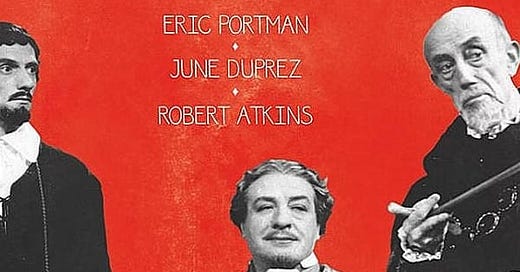Well, I tried to stump Google-search with this one: “incornifistigropilibustulate.”
But I got one return. And only one. It led me to a 1957 academic paper claiming the word, coined by Catholic essayist D. B. Wyndham Lewis, simply means “to confuse.” But, if you’re familiar with his work, you know Lewis couldn’t simply write “to confuse.”
I’ve mentioned the 1946 book A Century of the Catholic Essay in a previous post. Lewis’s piece, “Of Pleasant Noises,” is included therein and it’s where I first came across incornifistigropilibustulate.
Dominic Bevan (D. B.) Wyndham Lewis (1894-1969) - not to be confused with the British radical Wyndham Lewis (1887-1951) and no relation - was a British journalist and humorist. Beginning in the 1920’s he wrote a humor column in the London Daily Express using the pen name “Beachcomber,” and the Daily Mail. Prior to taking up journalism he served in the Great War and soon after the war was received into the Church.
Raphael Gross, editor of A Century of the Catholic Essay, writes, “A rich cultural background is required to appreciate the now pungent and sophisticated, now bizarre and whimsical humor” of Lewis. His many works include A London Farrago, On Straw, and Welcome to All This.
His use of incornifistigropilibustulate found in the essay “On Pleasant Noises” is in reference to the pleasant noise of “the bawling of Mr. ******, a Leading Thinker, when menaced with punishment by the State for endeavouring to befuddle and incornifistigropilibustulate honest men’s minds.”
You might ask what other noises Lewis finds pleasant. Here are a few from his essay:
“The noise of water boiling in a kettle, the noise of a great wood thrashed by a storm, the noise of bees bumbling in a summer afternoon, of horses galloping, of a fiddle playing Couperin, of ducks quacking on green English ponds, of little waves guggling round a boat’s bow, of strong masterful men utterly discomfited, of bacon sputtering in a pan in the cool of morning, of knaves foaming against Providence, of a bell heard at sea, of adulterators of honest liquor unmasked and objurgating, of girls laughing on an April day, of the crackling and whispering of a beech-log fire in February, a hunting-horn heard in the green depths of the forest (though one poet I know esteems this a melancholy noise), of Andalusian voices lisping at nightfall, of drums throbbing far off to the tramp of infantry, of groaning farmwagons heavy with harvest, of stockbrokers howling after a market crash, of ice tinkling in a jug under the Dog-Star, of grasshoppers chirping in August hayfields, of high tides swishing regularly on shingle beaches, of distant scythes being honed, of anchor-chains rattling down in haven: all these are pleasant noises, enlarging and uplifting human hearts.”
Lewis was a prolific essayist, novelist, and screenwriter. His movie credits include cowriter of the screenplay for “The Man who Knew Too Much” (1934) directed by Alfred Hitchcock and the original “The Cardinal” (1936).





